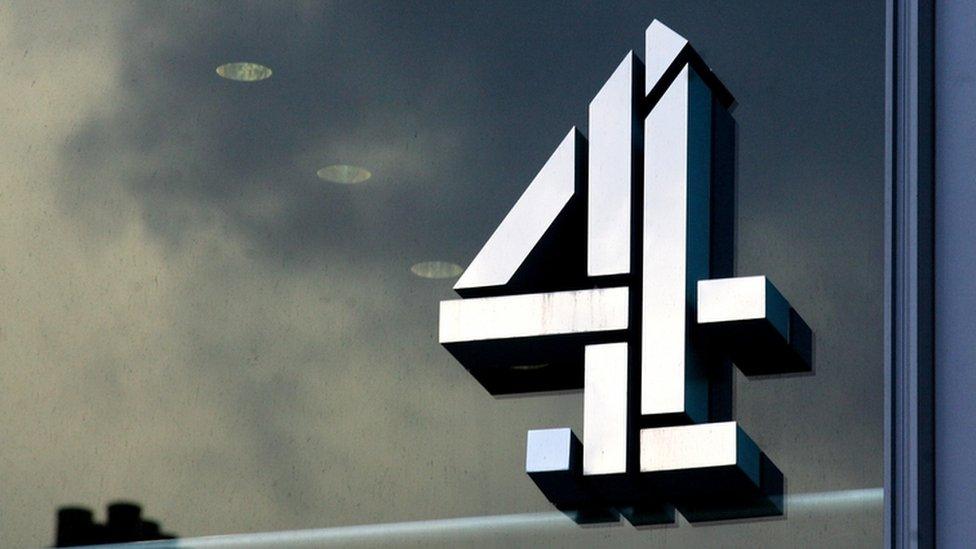Row brewing in Scotland over prospect of privatising Channel 4
- Published
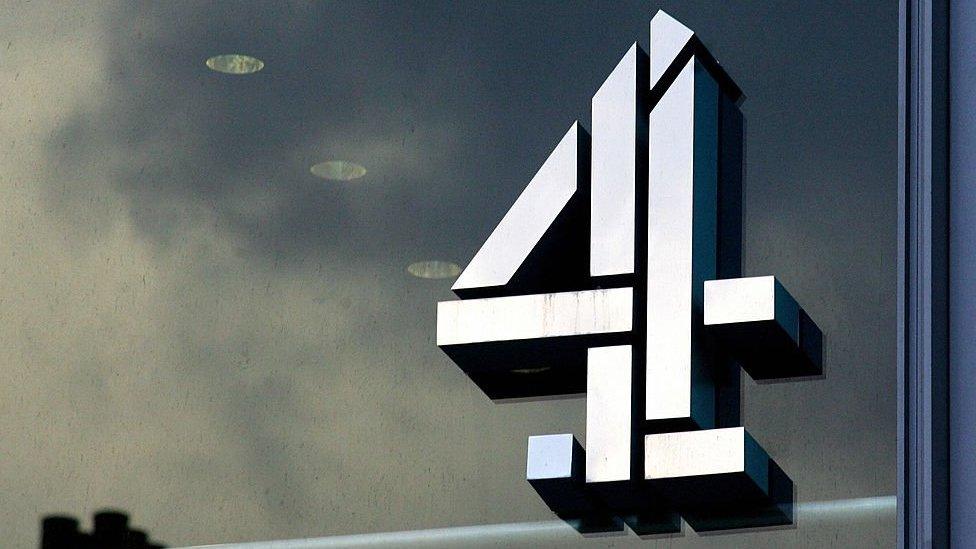
A row is brewing between Holyrood and Westminster over the possibility of privatising Channel 4.
The UK government is running a consultation on putting the channel up for sale.
But the Scottish government says it sees "no reason whatsoever" for a sell off.
Some Scottish production companies fear a privatised Channel 4 would spend less money in Scotland and support fewer jobs.
The UK government insists C4's public service obligations would continue if a change of ownership happens.
Channel 4 does not make any programmes specifically for a Scottish audience but production companies based in Scotland make some of its programmes.
It also has a "creative hub" in Glasgow's Merchant City.
One of Scotland's largest independent production companies is IWC Media which is based near St George's Cross in Glasgow.
It makes programmes for several broadcasters but one of its best-known titles is Channel 4's Location Location Location.
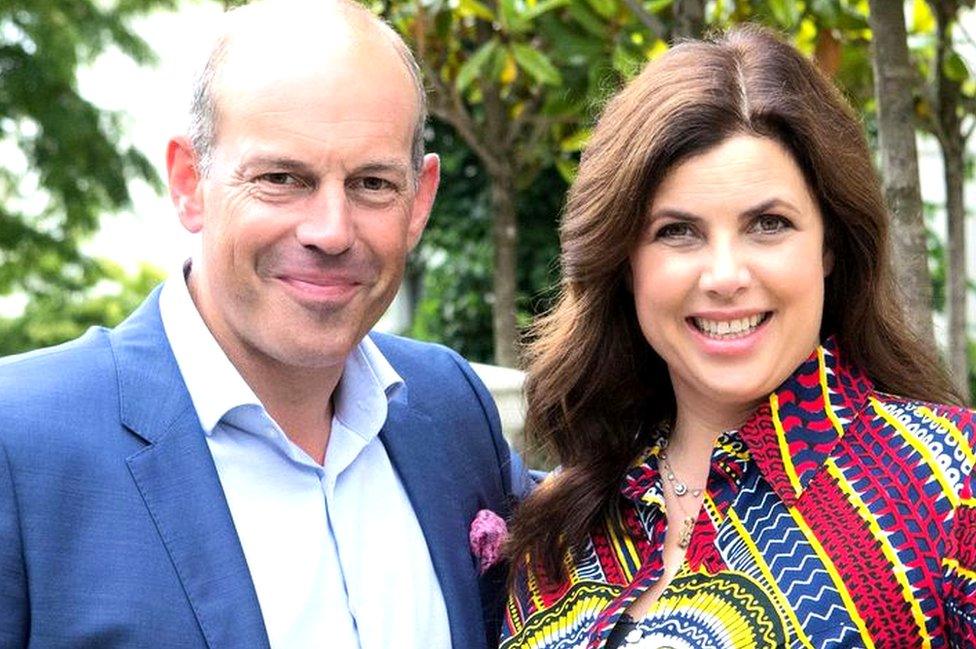
Phil Spencer and Kirstie Allsopp present the popular Location, Location, Location which is made by Glasgow-based production company IWC
IWC's creative director Mark Downie questions what benefits, if any, a sell-off of Channel 4 would bring to either production companies or the public.
He said: "Privatising Channel 4 would syphon off tens or hundreds of millions of pounds each year which is currently invested into a range of original British programming and hand that to shareholders as profit. Frankly, we don't see the point (of privatisation). "
Some critics argue that, to the viewing public at least, modern Channel 4 has lost much of its old idiosyncrasy and can often seem just like the other commercial channels.
Mr Downie points out that profits from popular programmes support investment in other output which would not be commercially viable. He summed up what he called "the Channel 4 magic" as "purposeful programming which is thought-provoking and uncommercial, paid for by popular successes."
Obvious examples might include the current affairs series Unreported World or the AIDS drama It's A Sin.

Channel 4 and Scotland
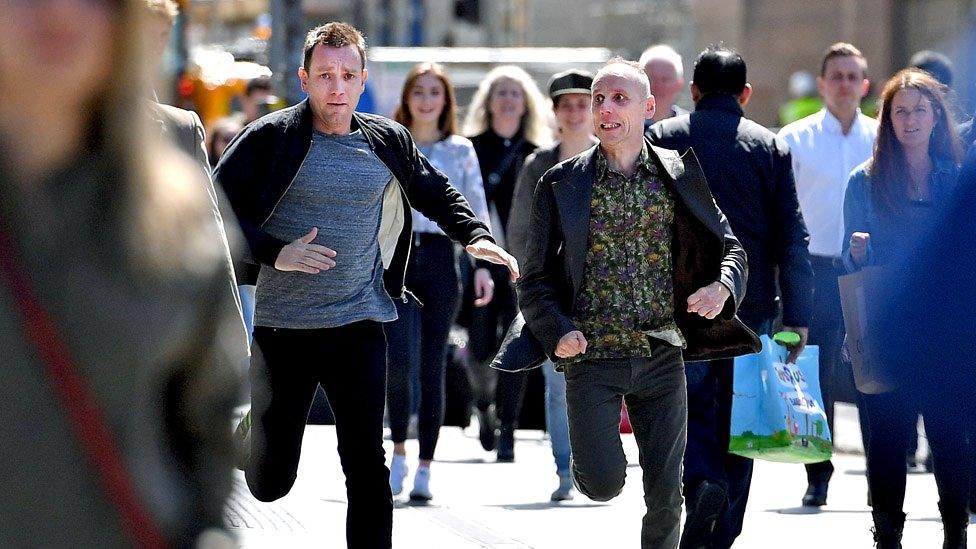
Trainspotting's sequel was filmed in Edinburgh in 2016
Channel 4 has spent more than £200m on Scottish commissions since 2007
In 2020 it spent £19m in Scotland
Channel 4's features and daytime team is based in Glasgow
The channel commissioned films made in Scotland including Trainspotting and Trainspotting II.
Source: Channel 4.

If Channel 4 were sold off, the media regulator Ofcom might be able to agree certain quotas to maintain a certain level of spending in the nations or protect specific areas of programming like news and current affairs.
But the channel's supporters also point out its support for smaller companies and its work to help people from a wider range of social backgrounds to work in television.
Firecrest Films is based in offices by the Govan shipyard. Its titles include Supershoppers.
Managing director Nicole Kleeman says C4 helped it grow from a small businesses run out of her own home into a significant employer in a deprived part of the city. C4 supported the company as it moved from producing short films to longer programmes and series. C4 also took a stake in the business as it expanded.
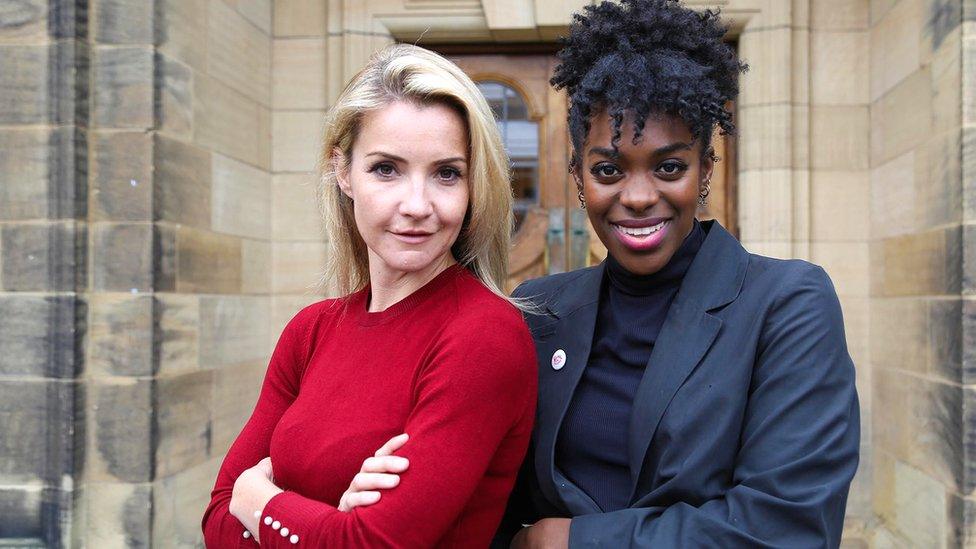
Helen Skelton and Sabrina Grant from Supershoppers, another production coming out of Scotland
She also highlighted C4's support for people who might have struggled to start a career in television production.
She said: "One of the shameful things about the TV industry is how middle class it is. A big reason for that is the way people are hired into the industry and the way people are employed in the industry on short-term contracts
"I speak in schools and when you speak to bright kids in deprived areas about the model of employment in television they're very put off and they all want to go and become doctors and lawyers and accountants where they'd have a staff job
"What C4 has done is to take a much more strategic approach than any other broadcaster I know to try and smooth out a lot of that
"So for instance they provide training schemes where they offer new entrants into the industry 12 month placements in companies like ours. They think about how they commission companies like ours so they can help cashflow a small business."
'Successful future'
The Scottish government thinks Channel 4 is currently in a good position and therefore not in need of change.
A spokeswoman said: "We strongly support the public service broadcasting system and the important and distinctive role Channel 4 plays in investing and supporting the independent production sector and driving creative innovation.
"We see no reason whatsoever to privatise Channel 4, and especially not at the very time it has shown its resilience in weathering the pandemic and strengthened its content spend and investment in Scotland."
The UK government says it wants to ensure C4 has a long term, successful future. It thinks it is appropriate to look at the ownership model to see if C4 might thrive better if it could access investment capital in the same way as other commercial channels.
The consultation document reads: "Channel 4 has successfully delivered on its remit, aims and objectives since it began broadcasting almost 40 years ago. It has also effectively managed the uncertainty in the market over the last few years as it has advanced its digital strategy. However, the evolving media landscape poses material challenges to Channel 4's future success and sustainability under its current ownership model and remit."
So far at least, a passionate debate within part of the broadcasting industry has not caught on with the viewing public.

The success of drama It's a Sin was down to investment from more popular programming
There is a certain irony in this.
The creation of Channel 4 in the 1980s followed many years of intense public debate. Some had argued that ITV should get a second channel to match BBC2 - others wanted a radically different model of television.
The channel also championed debate between programme makers and viewers. Indeed, in 1989 - when I was 17 - I got an opportunity to report from the Edinburgh TV Festival for the channel's Right to Reply programme. It was a bold risk by a dedicated researcher which led to my broadcasting career.
At present, outside the industry, the debate on C4's future has hardly been noticed. But as plans develop and the consultation continues, will this change?
- Published25 September 2015
